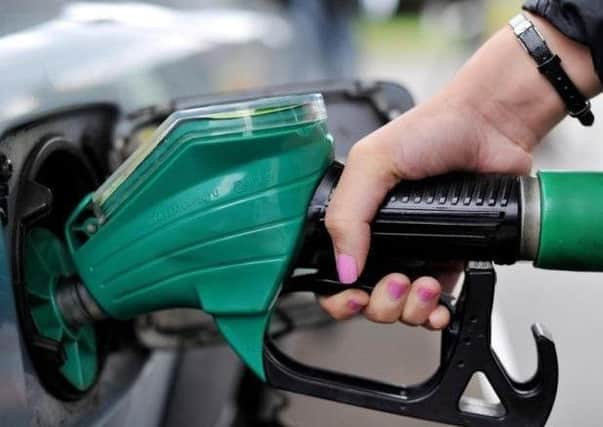Businesses feeling pinch as fuel costs rise


The cost of fuel rose by 6p per litre last month – the biggest monthly increase in 18 years.
Petrol prices hit on average of 129.4p per litre, while average diesel rose to 132.3p per litre, according to the RAC – and local businesses are feeling the pinch.
Advertisement
Hide AdAdvertisement
Hide AdSimon Ballinger, of Bal Driving Tuition in Blackpool, said: “It causes your bills to go up phenomenally. As an area we are not that wealthy, so we can’t put our prices up too much. That does make it difficult. We have got to absorb the cost while also trying to eat.
“Unfortunately, the costs can be astronomical.
“Six months ago, I could get a full tank for £32. Now it’s £42. It’s a huge difference.
“Your average driving school costs between £22 and £26 per lesson.
“I learned to drive in 1989, and my lessons then were £13 per hour. Nearly 30 years later, our prices have only gone up by £10. You can’t put your prices up because it’s such a competitive market. People wouldn’t pay it.
Advertisement
Hide AdAdvertisement
Hide Ad“It is disheartening because you’re working your backside off and your earnings add up to less than they did 10 years ago.
“In 2003, I was charging £19 an hour and I had more spare money then than I could dream of now. The cost of everything has gone up exponentially.”
The RAC said a combination of higher crude oil prices and a weaker pound was to blame for the increase in fuel costs, as oil is traded in dollars.
Average prices of both petrol and diesel have risen every day since April 22, making it the longest sustained price increase since March 2015, according to the motoring body.
Advertisement
Hide AdAdvertisement
Hide AdDonna Sumner, owner of Blackpool Driving School, said: “The price of fuel has a big impact on the price of lessons.
“While a lesson might cost around £25, if the cost of fuel keeps going up and up then we will have to change our prices accordingly.
“No changes have been made yet and hopefully the price is going to go down.
“As a bigger company, we have to have set prices.
“Like taxi drivers, the price of fuel is one of the biggest costs. It was once 100p per litre, not it’s 140p.”
And it’s not just driving schools that are affected.
Advertisement
Hide AdAdvertisement
Hide AdChris Blackshaw, owner of Lone Wolf couriers and Light Haulage in Blackpool, said: “It affects us because a lot of the time you can’t pass the price of the petrol on to your customers. A lot of the time we have to swallow it.
“That will be a problem if it keeps going up and up.
“It was about 20p cheaper this time last year. Fuel prices go up or down every month and we can’t change our prices every time.
“We buy in bulk so it costs us slightly less. Sometimes when the prices (of fuel) are going down and you have good, loyal customers you don’t have to worry about leaving the prices where they are.
“The biggest effect is at the pumps, more than anything. General drivers are going to feel it more.”
Advertisement
Hide AdAdvertisement
Hide AdWendy Roscow, of Roscow’s Haulage, Preston, said: “It does affect you because you can’t really keep putting your rates up. You have got to roll with it because it’s one of those things that is so up and down.
“You’ve just got to grin and bear it.
“It’s only really this past month that it has steadily gone up. You just have to absorb the cost.”
“We are just a small company and we have long-standing customers who do appreciate us. We have had to say in the past, when prices have gone up and stayed that way, that we have to raise our prices. But we only do that when it becomes absolutely crucial - because it’s not something that just affects us. It affects all drivers.
“Hopefully it will start coming down again.”
Steve Sugden, manager at HPH Haulage Limited in Walton-le-Dale, said: “Fuel can represent about 30 per cent of our costs.
Advertisement
Hide AdAdvertisement
Hide Ad“Potentially you could make a loss, but we would always negotiate. It hits your profits, that’s for sure. Most customers understand.
“National increases have a massive affect on profitability in some cases.
“It has affected our cash flow in the short term. We have no negotiation over the price of bulk fuel. We can shop around different suppliers, but the price increases affects them all.
“People can’t be without transport. Businesses who can’t pass the cost on to their customers will be most affected.”